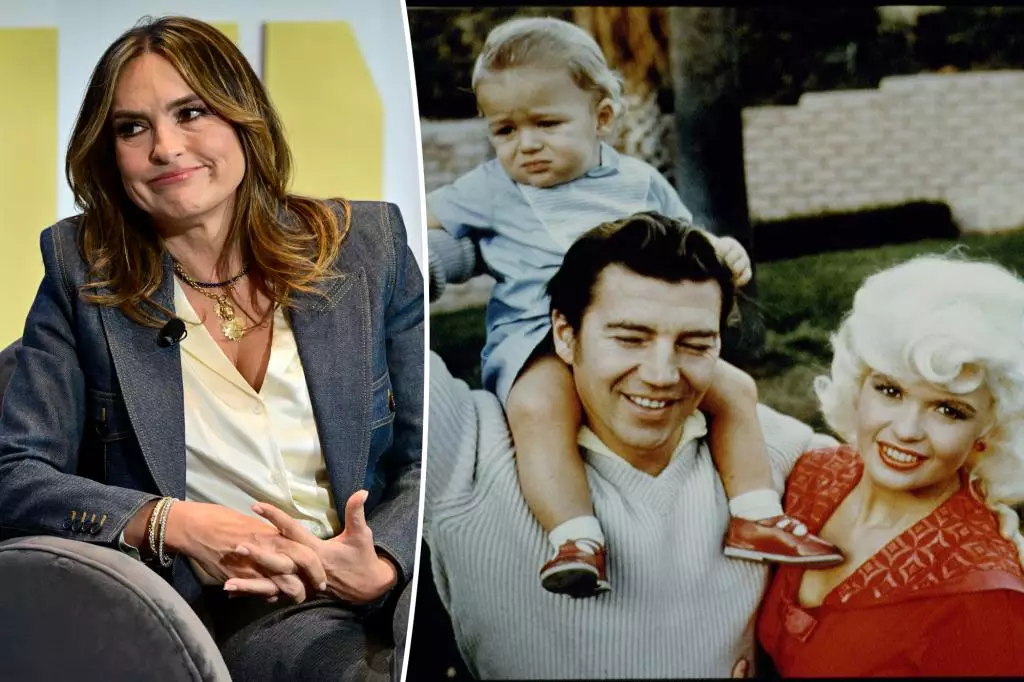Mariska Hargitay, a celebrated actress best known for her role on “Law & Order: SVU,” took a moment recently to reflect on the profound impact of grief in her life. While attending the Hope for Depression Research Foundation’s 18th Annual HOPE Luncheon Seminar, Hargitay spoke candidly about the death of her mother, Jayne Mansfield, who tragically lost her life in a car accident when Hargitay was just three years old. This moment not only served as a poignant reminder of her childhood loss, but also as a platform for her to share the insight she has gained throughout her journey of healing.
Hargitay described growing up in an environment saturated with grief, where emotional expression was often stifled. She noted, “Because there was so much grief, there wasn’t room to prioritize anyone.” This sentiment encapsulates the experience of many who encounter familial loss early in life. It raises important questions about how we process trauma and the enduring effects it can have on emotional development. Hargitay’s acknowledgment of the lack of resources and understanding available during her youth is crucial as it highlights the changes in societal discourse around mental health and trauma in recent years.
One of the pivotal moments in Hargitay’s life came much later when she began to understand the complexities of her own trauma, which included experiences of sexual trauma in her thirties. This self-discovery prompted her to found the Joyful Heart Foundation, a non-profit organization designed to support survivors of sexual assault, domestic violence, and child abuse. Hargitay’s initiative was not merely a reaction to her experiences but a commitment to creating spaces for healing—a testament to her desire to provide what she felt was missing in her life.
During her speech, Hargitay expressed gratitude for the therapists who guided her along this path of healing, underlining the importance of professional support in overcoming trauma. By establishing a foundation that aims to address trauma in the way she needed, Hargitay has turned her personal pain into a source of empowerment and hope for others. Her journey emphasizes the powerful role that advocacy and outreach can play in the collective healing process, encouraging others to seek help and affirmation.
Grief is often portrayed as an isolating emotion, but Hargitay’s perspective sheds light on its dual nature. In various interviews, she has described her process of living with loss as learning to lean into it rather than escape it. This approach, she says, has afforded her moments of clarity and brightness on the other side of pain. Her assertion, “the only way out is through,” is particularly resonant, suggesting that authentic engagement with grief is vital for genuine healing and personal growth.
Hargitay’s experiences with grief grant her a unique voice in the conversation regarding mental health. She advocates for the recognition of complex trauma, noting that many individuals carry their burdens silently. Her assurances that “there is hope” are likely a lifeline to those grappling with their own histories of loss, a powerful reminder that healing is an attainable goal.
Through her advocacy and personal reflections, Hargitay also honors her mother’s legacy. Jayne Mansfield, a prominent cultural figure, was a symbol of glamor and vibrancy, and Hargitay’s admiration for her shines through her words. She describes her mother as “an inspiration” and acknowledges the strong connection they share in terms of passion for life. By reflecting on her mother’s remarkable persona, Hargitay reclaims her own identity while navigating the complex layers of loss and love.
In an era where the discussion around mental health is becoming more open, Mariska Hargitay’s story serves both as a cautionary tale and a bright beacon of hope. Her ability to articulate her experiences with trauma while motivating others to find their own paths to healing illustrates the intricate relationship between personal pain and public advocacy. As we continue to unravel the nuances of grief, Hargitay stands at the forefront, illustrating that even in profound loss, there exists the potential for profound resilience.

